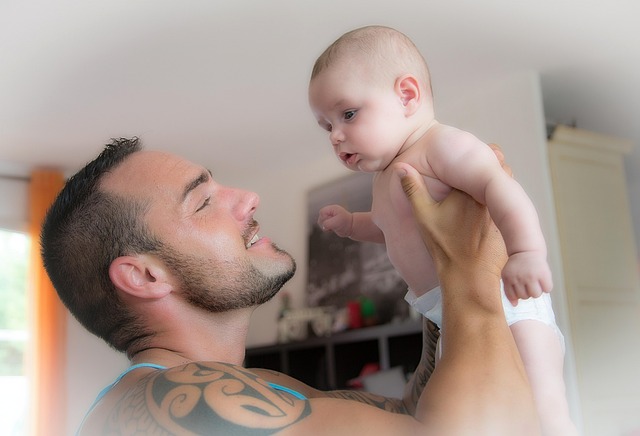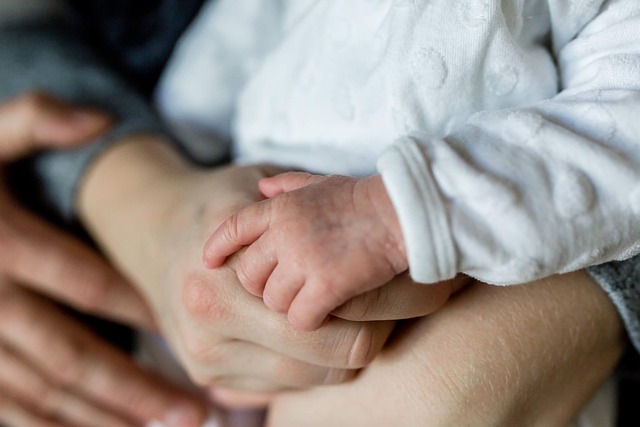Navigating Gay Couple Surrogacy: Prepare for Your Growing Family

Gay couple surrogacy is a complex yet rewarding path to parenthood, demanding collaboration between…….
In an era where societal norms continue to evolve, the concept of family formation has expanded beyond traditional boundaries. Surrogacy, a life-changing path for many, has gained significant relevance within the LGBTQ+ community, particularly for same-sex couples seeking to build their families. This article delves into the intricate world of surrogacy tailored to same-sex partnerships, exploring its various facets, impacts, and implications. By understanding this process, we can appreciate its role in fostering family diversity and addressing unique challenges faced by these couples.
Surrogacy is an arrangement where a woman agrees to bear a child on behalf of another person or couple, known as the intended parents. In the context of same-sex couples, surrogacy becomes a means to achieve parentalhood, offering a solution to biological barriers. The process typically involves three main parties:
The history of surrogacy is rooted in ancient times, but its modern application has evolved significantly. Within the LGBTQ+ community, surrogacy gained prominence as a means for gay male couples to establish parental ties. As same-sex marriage became legal in various countries, surrogacy arrangements adapted to meet the needs of these families. For lesbian couples, who often face challenges with fertility treatments, surrogacy offers an alternative path to parenthood.
Surrogacy for same-sex couples is significant for several reasons:
The global impact of surrogacy for same-sex couples is evident across various regions, each with unique dynamics and cultural contexts:
| Region | Trends and Impact |
|---|---|
| North America | Leading the way in legal recognition and acceptance, countries like the US and Canada have seen a rise in surrogacy arrangements for same-sex couples. Strict regulations ensure ethical practices, but the high cost of surrogacy makes it accessible only to wealthier families. |
| Europe | European countries exhibit varying levels of acceptance. Some nations allow surrogacy with extensive legal protections, while others restrict or prohibit it entirely. The availability of advanced fertility treatments influences the demand for surrogacy. |
| Asia | In many Asian countries, cultural and religious beliefs shape public perception. While surrogacy is legal in some places like India and Thailand, strict regulations limit its accessibility. Same-sex couples often seek destinations offering more permissive laws. |
| Middle East | The region has a diverse landscape, with some countries allowing surrogacy for same-sex couples while others maintain stringent restrictions. The demand for surrogacy services is influenced by the growing acceptance of LGBTQ+ rights in certain areas. |
| Latin America | Surrogacy arrangements are relatively rare but emerging, especially in countries like Mexico and Brazil, where legal frameworks are evolving to accommodate same-sex families. |
The economic aspects of surrogacy for same-sex couples involve a complex interplay of market dynamics and individual circumstances:
Medical advancements have played a pivotal role in enhancing the success rates of surrogacy for same-sex couples:
The legal landscape surrounding surrogacy for same-sex couples is complex and varies globally:
The process of arranging a surrogacy journey for same-sex couples involves several key steps:
Surrogacy for same-sex couples presents both challenges and advantages:
The field of surrogacy for same-sex couples continues to evolve with ongoing research and changing societal norms:
Surrogacy tailored to same-sex couples is a powerful tool for family formation, offering solutions to unique challenges within the LGBTQ+ community. By understanding its intricacies, legal frameworks, and evolving landscape, we can appreciate the impact it has on fostering diverse and loving families. As societal attitudes continue to progress, surrogacy will undoubtedly play a more prominent role in shaping the future of family structures worldwide.

Gay couple surrogacy is a complex yet rewarding path to parenthood, demanding collaboration between…….

Gestational surrogacy emerges as a revolutionary LGBTQ+ surrogacy option, eliminating genetic ties a…….

Lesbian couple surrogacy faces global legal variations, with some countries explicitly legalizing it…….

Gay couple surrogacy offers a legal path to family building, with options like traditional and gesta…….

Surrogacy for same-sex couples offers a personalized path to parenthood, navigating legal frameworks…….

Same-sex couples considering surrogacy for parenthood must understand birth certificate requirements…….

Global legal recognition of same-sex families has advanced significantly, providing LGBTQ+ parents w…….

Gay couple surrogacy involves navigating legal agreements and emotional milestones with support from…….

LGBTQ+ couples considering gay couple surrogacy for family building should focus on reputable donor…….

Lesbian couple surrogacy faces misconceptions rooted in societal perceptions and stereotypes, challe…….